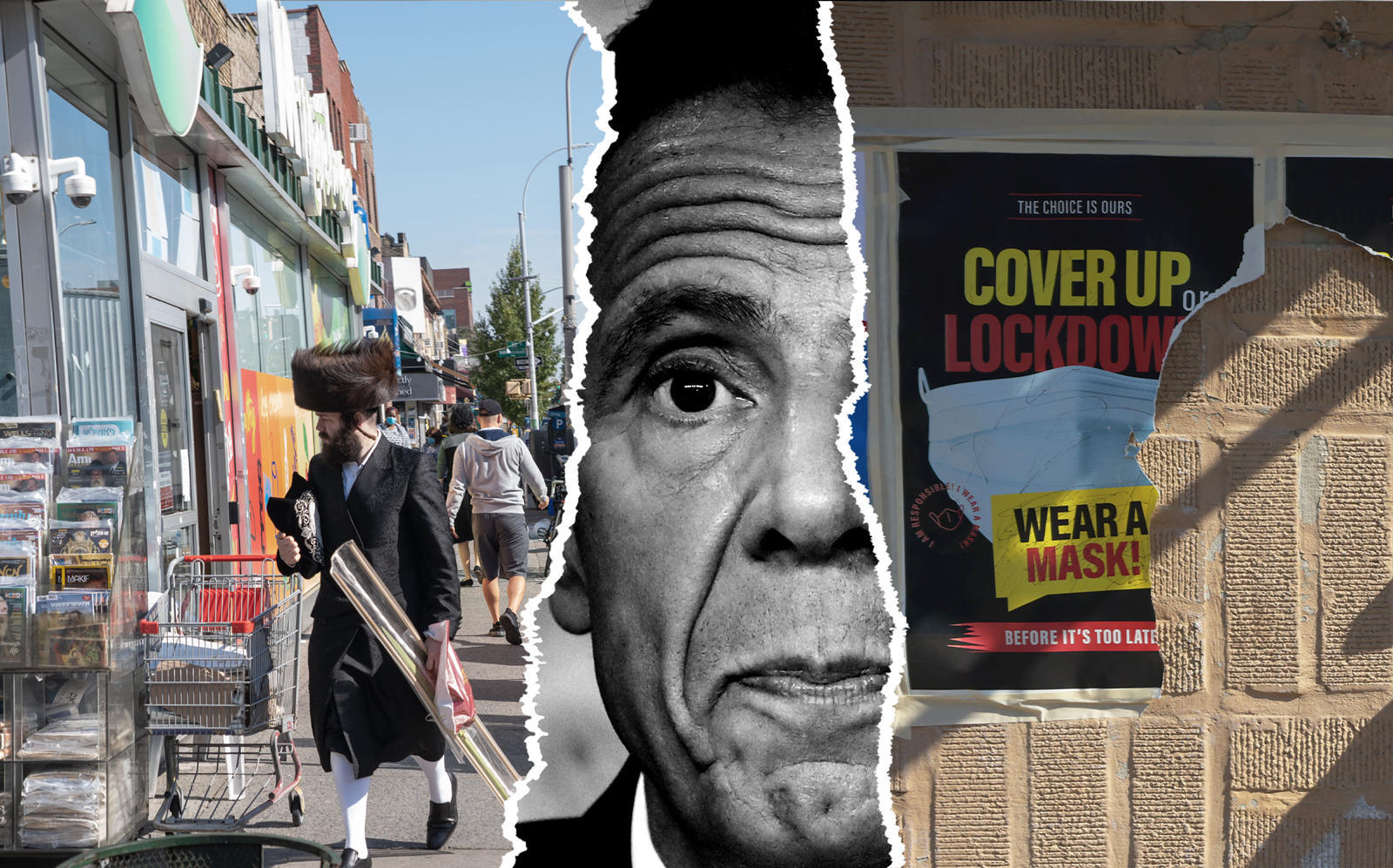On the streets of Brooklyn, residents and religious leaders from the borough’s Orthodox Jewish community have responded with outrage to Gov. Andrew Cuomo’s new restrictions on Covid hot spots.
Fires burned and at least one Hasidic man was hospitalized after being beaten by several protesters, the New York Times reported.
The protests Tuesday night and Wednesday came after Cuomo outlined his plan for imposing a second lockdown in five counties throughout the state where Covid-19 infection rates are rising. In New York City, the neighborhoods affected by the restrictions are exclusively in Brooklyn, spanning roughly from Borough Park south to Midwood, Sheepshead Bay and Marine Park.
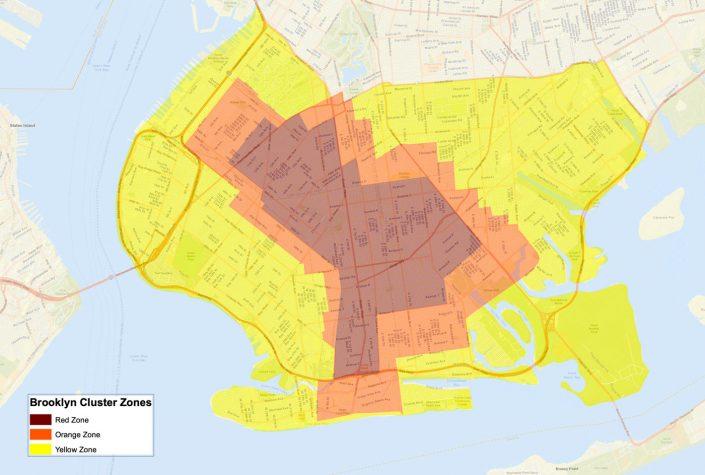
Brooklyn Cluster Zones (Governer’s Office)
The real estate industry’s response to the second lockdown was comparatively muted, while business owners lamented the measures.
Though many developers and investors have recently been outspoken in calling for offices to reopen and workers to return to their pre-Covid routines, most trade organizations have come out in support of Cuomo’s restrictions, chief among them the Real Estate Board of New York.
His orders range from limiting services to a broader lockdown, which shuts down non-essential businesses, schools and outdoor dining, and reduces the number of people allowed in places of worship to a maximum of 10.
Read more
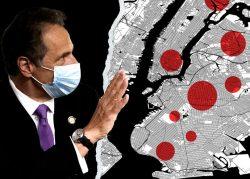
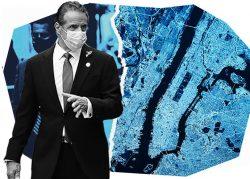
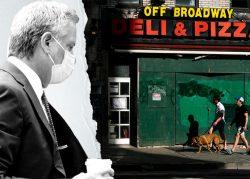
New York real estate leaders have largely agreed with the governor’s argument that economic recovery hinges not just on reopening, but controlling the spread of the coronavirus.
REBNY President James Whelan said the recent spikes in Covid cases in some areas “drives home the need for every New Yorker to do his or her part in taking measures such as mask wearing, social distancing and avoiding large gatherings.”
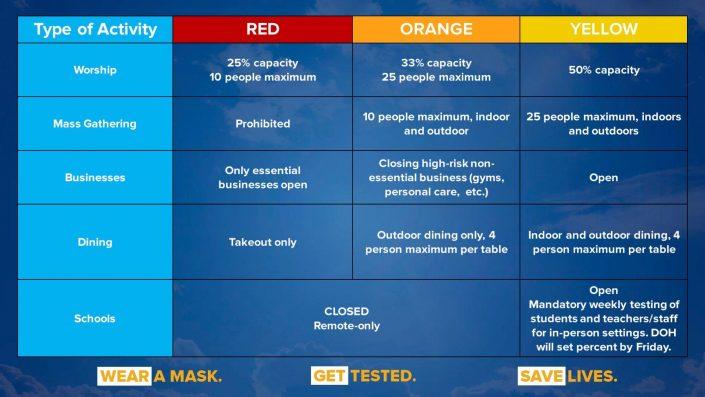
(Governer’s Office)
Cathay Taub, co-chair of New York Residential Agent Continuum, a group representing real estate agents and brokers, took a similar stance.
“We implore everyone in our city, without exception, to adhere to safe practices designed to curb the spread of Covid-19,” she said in a statement.
Small-business owners and some brokers expressed frustration at the new rules, however.
Randy Peers, Brooklyn Chamber of Commerce president and CEO, said “common-sense compliance and enforcement” should be enough to address the spiking infection rates.
“To shut down almost all of south Brooklyn and punish small businesses that have reopened safely will be an overwhelming setback to the borough’s economic recovery,” said Peers in a statement.
In announcing the restrictions, Cuomo noted, “It’s not about the non-essential businesses.”
Still, the lockdowns have massive implications for the businesses in affected zones.
For retail, they mean “more stores closing their doors for good,” Peter McGuire, a broker with Smith Hanten Properties, said in an email.
“It takes months and years to build up a following and brick-and-mortar presence in a community — and days/weeks to decide to analyze cash flow and metaphorically stop fishing/cut bait and close your doors,” McGuire added.
Restaurants, in particular, celebrated the start of indoor dining only on Sept. 30, although many said that the 25 percent capacity limit had to be just a starting point if they were to survive. In and around the so-called “red zones” — those areas with the most cases — that celebration has come to a halt.
Still, some commercial landlords have been renegotiating leases with their tenants, adding Covid clauses that limit how much rent is owed. The lockdown may put those negotiations back into play, according to John Akleh, CEO of brokerage Sido New York Real Estate.
And for those who are doing well, the lockdown provides the opportunity to find new spaces at better deals.
“Places are asking $18,000, tenants are offering $8,000,” Akleh said. “People are really educated on the market and they’re definitely taking advantage of it, one way or another.”
For now, construction is not affected, though that could change. The governor shut down non-essential construction sites for nearly three months at the start of the pandemic. Gary LaBarbera, president of the Building and Construction Trades Council of Greater New York, said he is confident developers and construction managers “have established the protocols necessary to keep our workers safe and continue building during this period.”
“Of course, with the safety and well-being of workers as our utmost priority, we routinely monitor the situation with city and state officials and will adjust our approach if necessary,” he said in a statement.
In 14 days, state and city officials will reassess the situation and determine what restrictions should remain.
Kathryn Brenzel contributed reporting.
